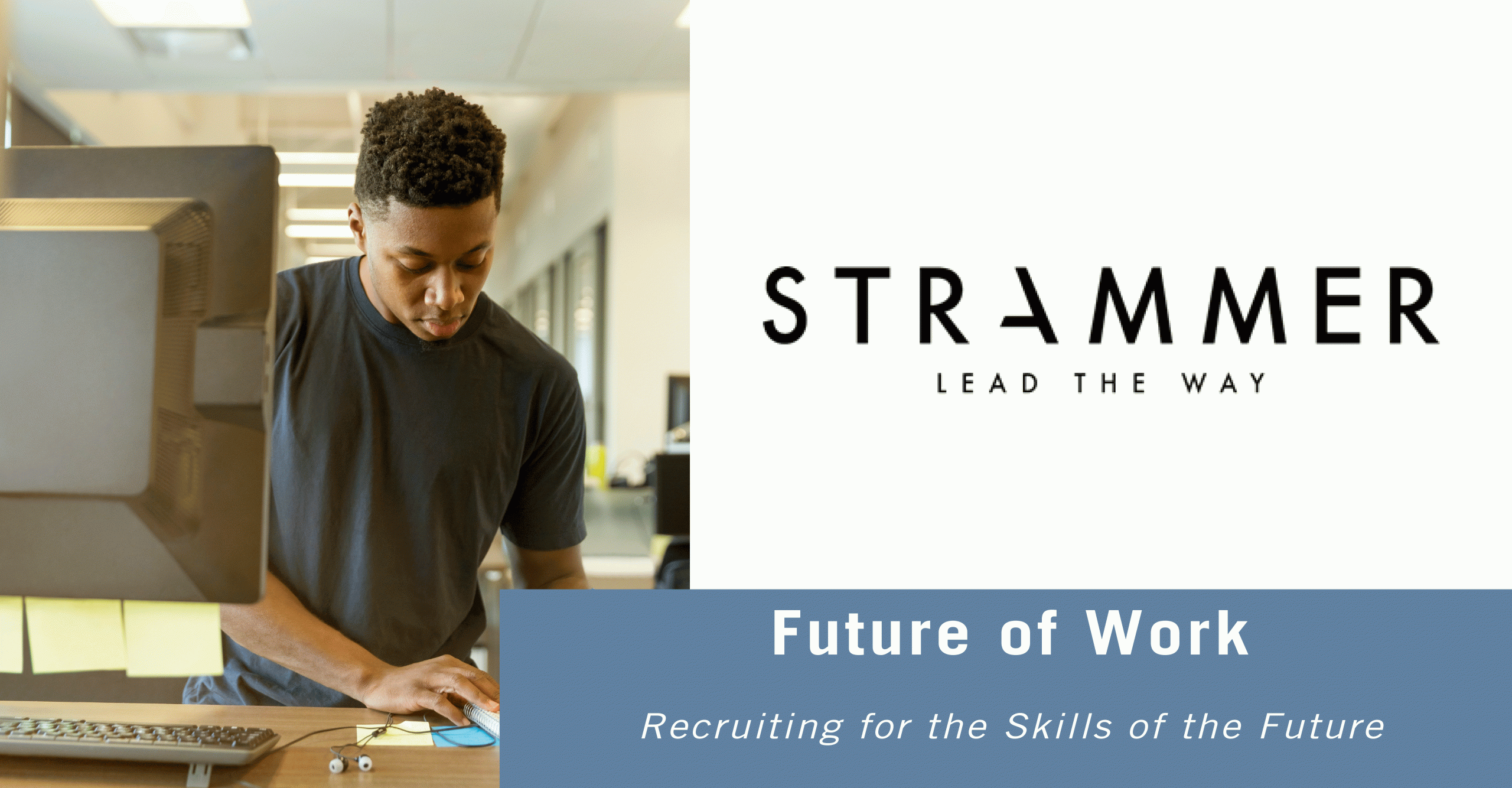Recruiting for the Skills of the Future
In today’s business environment, it is a company’s people that drive its success. As workplace digitalisation advances and accelerates, recruiting candidates with the right skills to face future challenges is critical.
Forecasts on the future of work have predicted huge job change in the approaching years. Machines are thought to become more and more present in the workplace as ‘collaborators’ with human employees, and expanding automation is supposed to relieve them of repetitive tasks. Some roles may become obsolete while others will be adapted or are yet to be created.
As these trends progress, HR are responsible for ensuring that companies have the skills needed to compete. According to LinkedIn research, 65% of hiring professionals said their number 1 priority in the next 5 years is “Keeping up with rapidly changing hiring needs.”
As machines increasingly assume workplace tasks, humans may need to prepare to take on new or different tasks. This recreation of job roles is a subject that Bill Schaninger and Bryan Hancock discuss in a McKinsey Organisation podcast. In it, they say that we must think of ‘human skills’ as well as technical ones.
Indeed, companies will need to recruit not only for digital skills, such as analysing data or programming, but also soft skills. In fact, research by LinkedIn suggests that employers are already struggling to find candidates with the required soft skills. Further, the same study found 58% of hiring managers believed that the lack of soft skills among candidates is “limiting their company’s productivity.”
In terms of soft skills of the future, communication will be key. Having employees who can express themselves deftly is integral to productivity, effective collaboration, and customer satisfaction. Human speech and writing are still unmatched by AI technologies, and so, many suggest, it is through these sorts of soft skills that people will drive value for businesses in the future.
But beyond tangible skills, it is important to consider the candidate mindset. Stanford professor Carol Dweng found that our mindsets influence our success. Those who adopt what she terms a ‘growth’ mindset believe that with work and effort, they can succeed, which orientates them towards learning and improvement. Thus, recruiting people who have a positive mindset and a good attitude towards new technologies may help organisations to build strong cultures and integrate new technologies more easily.
In conclusion, digitalisation is already changing jobs and is set to increase its pace in the coming years. As those tasked with acquiring the talent upon which business success depends, HR professionals will play crucial roles in helping companies complete their digital transformation processes and in equipping organisations with the right people to drive business growth and success.
References:
- Prepare for the Future of Work: How HR leadership can best address future of work challenges & opportunities, Gartner.
- Importance of effective communication in the workplace, Divyanshi Tripathi, June 2020, Medium.
- Hiring For Skills Of The Future: Part Two, Yolanda Lau, February 2021, Forbes.
- Why Mindset Matters for Your Success, Kendra Cherry, March 2020, VeryWellMind.





